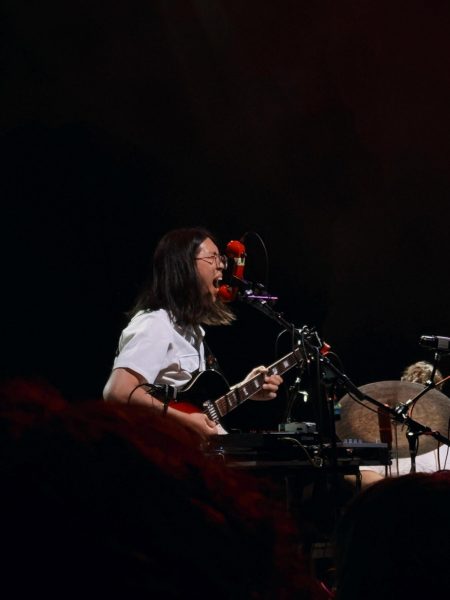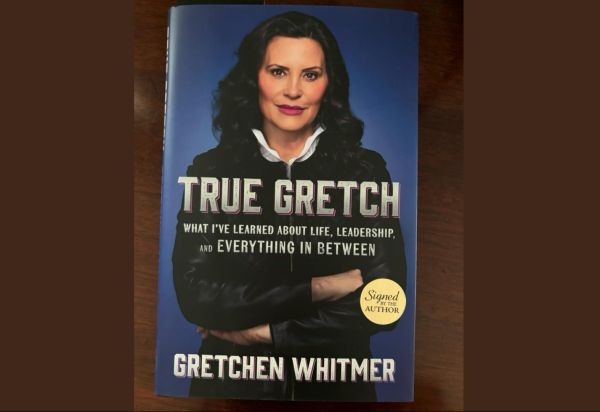Books That Change Lives
Ronan Laporte in the CHS library. Being a self-described “contrarian,” however, Laporte decided to read “The Communist Manifesto” as a way to explore the nuance of different governmental systems. “I want to grow up and do everything in my power to make it so that life for people who aren’t as privileged as me is dignified and valuable,” Laporte said.
Ronan Laporte takes U.S. History, just like many of his freshman classmates. He has spent his first semester at CHS learning about the women’s rights movement and the Industrial Revolution. However, Laporte brings to his history class a context that has changed the way he looks at the world: “The Communist Manifesto” by Karl Marx.
When he was in seventh grade, in the midst of the COVID-19 pandemic, Laporte picked up “The Communist Manifesto” out of pure interest. He had spent the majority of his school years learning that systems like communism could never lead to positive ways of life.
“I have always looked at communism [and] socialism as bad things, done in bad places,” Laporte said.
xxz
Being a self-described “contrarian,” however, Laporte decided to read “The Communist Manifesto” as a way to explore the nuance of different governmental systems. Laporte views the U.S. as the “hegemonic imperial core,” and believes that it revolves around capitalism. Therefore, he wanted exposure to other forms of living.
“The Communist Manifesto” prompted a social awakening for Laporte. Although he was politically active before reading it, the book helped him recognize the privilege that he has, both materially and fiscally and motivated him to be a larger part of the leftist political movement. He recently volunteered for Governor Gretchen Whitmer’s reelection campaign, knocking on doors to encourage Michigan voters to go to the polls. Laporte believes that Marxism is defined by a “constant moving forward.”
“When we’re not [moving forward], we’re regressing,” Laporte said. “Right now, the Democratic Party isn’t doing much [as] the Republicans are taking away rights, like access to abortion. I think progress is the most important thing.”
Laporte has experienced the ideas of “The Communist Manifesto” portrayed in his own life. Growing up, he has seen things that he considers “symptoms of a capitalist society,” such as high rates of homelessness and increasing mental health problems. According to Laporte, a large reason for this is the lack of social safety nets in the U.S., which leaves many people struggling to access resources when they need them.
“There aretttt32 just so many horrible things happening in our society,” Laporte said. “It is right in front of [our] eyes and people just walk right past it, walk past someone who literally can’t get food.”
Reading “The Communist Manifesto” has led Laporte to other Marxist materials, like “Das Kapital.” These readings have helped him recognize bias in his life, particularly within the education system. Although he loves his history class and believes that his teacher effectively identifies the prejudice in history, Laporte has realized that bias is impossible to erase.
“I can see the flaws in [history classes] in a more complex way than I would be able to if [I didn’t have this context],” Laporte said. “This is deeply anti-working class. This is deeply anti-revolutionary. [The way history is taught] is more [a proponent of] ‘this is how things were and everything is great now.’ So [looking at my history class] through a Marxist lens helps me look at my history classes in a more refined way.”
As he keeps learning, Laporte hopes to contribute to changing the capitalist system that we live in today. His goal is to work for the United Nations and travel around the world, helping those who are not as fortunate as him.
“I want to grow up and do everything in my power to make it so that life for people who aren’t as privileged as me is dignified and valuable,” Laporte said.















